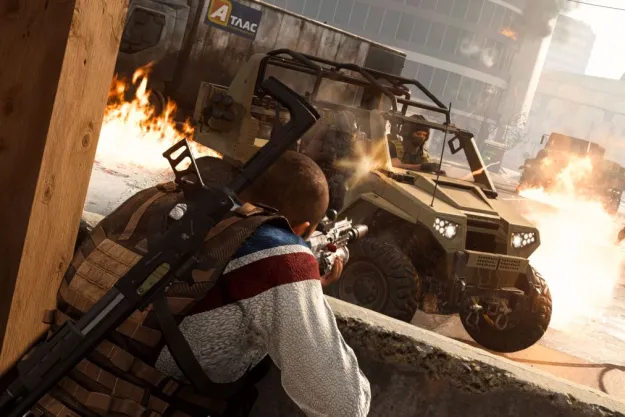The announcement of 2022's Call of Duty was always going to feel weird. Over the last year, Activision Blizzard has been scrutinized over horrific sexual harassment allegations, turned Call of Duty: Warzone into a glitchy and bloated mess, and was acquired by Microsoft. But I wasn't expecting its reveal to be this sloppy.
Activision Blizzard previously mentioned that Infinity Ward was making a new Call of Duty. Then, at 1 p.m. ET on February 11, enthusiast Call of Duty websites and content creators posted that Activision told them that Modern Warfare 2 and a reworked Warzone with a sandbox mode are on the way. There was no official word on these claims for about 15 minutes, but Activision eventually confirmed them... in the footnotes of a blog post. Its reveal lacked excitement, was confusing, and dodged the biggest questions surrounding Activision Blizzard.
Six weeks into 2022, this is just the latest example of a AAA publisher announcing a huge game with little fanfare. But why have AAA publishers dropped the pomp and circumstance of their game reveals?
Activision wants you to know that 2022's Call of Duty is a sequel to 2019's Modern Warfare and on a new engine. Image used with permission by copyright holder
For the fans
Previously, a trailer, press release, and detailed info about what players could expect accompanied Call of Duty game announcements. In recent years, it even happened inside Call of Duty: Warzone! We weren't so lucky this time and had to deal with a flurry of enthusiasts and leakers claiming to have new information about the game with no good way to verify its truthfulness.
Earlier this week, there was reportedly a call where Activision and Infinity Ward revealed the new information on this game, but it seems to have been attended almost solely by enthusiast sites and content creators. Even the most prominent gaming sites like IGN and GameSpot didn't seem privy to the news beforehand.
This announcement was made by the fans before Activision even confirmed it. Based on the coverage from those in attendance, it doesn't seem like content creators asked the tough questions about the status of Activision Blizzard's workplace, how the acquisition affects these games, and the reasoning behind Activision Blizzard's decision making (perhaps they did and Activision refused to comment, but we'll likely never know).
By announcing it this way, Activision Blizzard circumvents having to answer hard questions about the company's current state, gets free press from its fans, and gets ahead of the leaks, reports, and rumors that have occurred since the Microsoft acquisition. Activision built a mostly positive -- if oddly rolled out -- reveal narrative for the new Call of Duty that doesn't have much substance.
While other announcements this year haven't felt as malicious, they still lacked a certain flair that we've come to expect.
Rockstar announced Grand Theft Auto 6 in the footnotes of a GTA series blog post. Respawn Entertainment announced three new Star Wars games, including a sequel to Star Wars Jedi: Fallen Order, through a tweet and press release light on additional details. Even Blizzard did it just a few weeks ago with a survival game blog post reveal that called the game "unannounced" in its announcement. None of them had trailers (Crytek got this right with Crysis 4). AAA games are being announced very early with minimal assets and information, making these unveils much less impactful.
This is the only asset EA released alongside its Respawn Entertainment Star Wars announcement. Image used with permission by copyright holder
For the company
As I previously discussed when Rockstar announced GTA 6, these reveals aren't really about the fans -- they are about the investors and potential hires. Activision first discussed 2022's Call of Duty in a financial results report. GTA 6, the Respawn Star Wars deal, and the Blizzard survival game were announced ahead of earnings reports from their respective companies. The latter two were tied to recruitment calls for their respective developers.
The gaming industry is in the middle of an acquisition craze, and studios are reportedly struggling to recruit great talent. Announcing video games in a nonchalant way helps address both of those issues. Games that are almost guaranteed to be hits please current investors and entice potential buyers. Meanwhile, some developers might be more willing to jump ship from their current employer and work for someone else if they know exactly what they're working on. If some fans get hyped and don't ask tough questions, that's just a positive side effect.
These publishers are putting the bare minimum into reveals and yielding the greatest results. And if this strategy generates enough buzz and keeps working, this might become the norm outside of events like E3, or individual showcases like Nintendo Directs, where fans expect game developers to go all out.
I'm not frustrated because I'm not getting flashy reveals. It's that these announcements all seem more focused on drip-feeding the minimal amount of info so that studios can drive up profits, circumvent criticism, and please investors without sharing anything of substance. As a fan of games, that makes it challenging to care about big projects that should have me excited.


